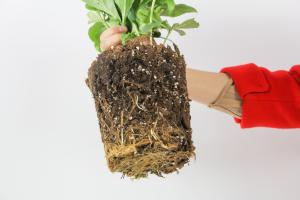Can Plants Grow with Sea Water?
The availability of fresh water for agricultural purposes is becoming increasingly limited worldwide. This has led to researchers exploring alternatives for irrigation of crops. One alternative that has gained attention in recent years is using sea water for growing plants. But can plants actually grow with sea water? Let’s find out.
The Challenge of Growing Plants with Sea Water
Sea water has a high salt concentration compared to fresh water. This high salt content creates an osmotic challenge for plants as they try to absorb water. Osmotic pressure builds up in the roots, making it difficult for them to take in more water. As a result, plants can become dehydrated and die.
In addition to the salt content, sea water also contains other minerals and elements that can be toxic to plants in high concentrations. These include chloride, sodium, and magnesium.
Plants That Can Grow with Sea Water
Despite the challenge of growing crops with sea water, there are some plant species that have adapted to thrive in these conditions. These plants are known as halophytes, which means "salt-loving".
Halophytes have developed mechanisms to tolerate high salt concentrations in their environment. For example, they may have specialized roots that excrete salt or store it in vacuoles. They may also have biochemical pathways that prevent salt from building up in their leaves.
Some examples of halophytic crops that can be grown with sea water include quinoa, salicornia, and sea asparagus.
Pros and Cons of Growing Plants with Sea Water
One of the main advantages of using sea water for irrigation is that it is abundant and readily available. This can be especially beneficial for regions that are facing water scarcity. Also, the use of sea water for irrigation can reduce the reliance on freshwater resources, which are becoming increasingly scarce and are sometimes a source of conflict between countries.
However, there are also some disadvantages to using sea water for growing plants. One of the main challenges is that not all crops can be grown with sea water, which limits the range of agricultural possibilities. Also, using sea water for irrigation can be costly due to the necessary infrastructure for pumping and treating the water.
The Bottom Line
Can plants grow with sea water? The answer is yes, but only certain types of plants, such as halophytes, have evolved to tolerate high salt concentrations. While there are some advantages to using sea water for irrigation, there are also some drawbacks that must be considered. Ultimately, the use of sea water for growing crops will depend on the specific agricultural needs and conditions of each region.

 how many times do yo...
how many times do yo... how many planted tre...
how many planted tre... how many pine trees ...
how many pine trees ... how many pecan trees...
how many pecan trees... how many plants comp...
how many plants comp... how many plants can ...
how many plants can ... how many plants and ...
how many plants and ... how many pepper plan...
how many pepper plan...































